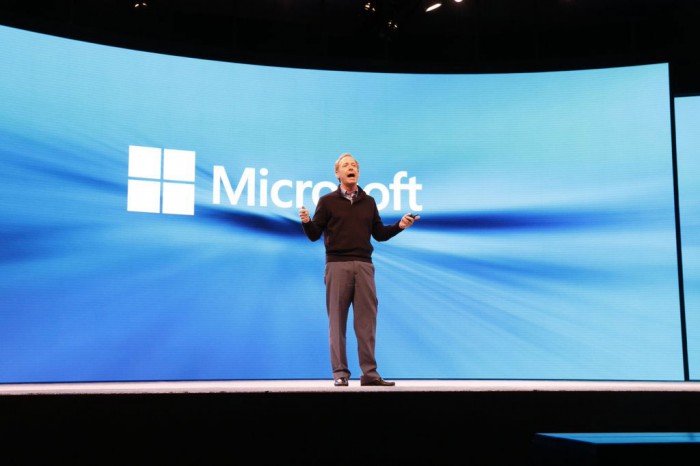One for the History Books: Microsoft Is Apple’s Greatest Ally Against the FBI
Even the Supreme Court can’t settle the conflict underlying Apple’s standoff with the FBI over whether it must help investigators unlock iPhones, Microsoft president Brad Smith said Tuesday. Congress must urgently study up on encryption and pass new legislation to define what companies can be required to do to help law enforcement, he said.
That can be achieved only by new legislation restricting what the government can ask of technology companies, he said. Smith did not say what he thought those limits should be, but he said new rules are urgently needed because existing legislation is so old. The FBI’s court order demanding that Apple help it break into the San Bernardino shooter’s iPhone was issued under the All Writs Act of 1789.
Smith, also Microsoft’s chief legal officer, made those calls in a forceful speech at the world’s largest computer security conference, RSA, in San Francisco.
He said that Apple’s fight with the government raises a “fundamental question for this country and the world.” And he offered strong support to Apple CEO Tim Cook’s claim that helping the FBI would create a “back door” that would undermine the security of consumers.
“The path to hell starts with a back door,” said Smith. “We need to make sure that encryption technology remains strong.”
“We need governments to strike the balance,” said Smith. “But it needs to be a well-informed balance.”
He backed the idea of establishing a congressional commission of experts to help legislators craft a new law, an idea being advanced by Senator Mark Warner, a Democrat from Virginia, and Representative Michael McCaul, a Republican from Texas who is chair of the House Committee on Homeland Security.

“A commission of experts gives us the best possible opportunity to move the law forward,” Smith said.
Microsoft, and Smith in particular, has emerged as Apple’s staunchest ally in its dispute with the FBI. He offered firm and at times theatrical support in Congress last week, waving a floppy disk to illustrate how technology has changed since the Electronic Communications Privacy Act was passed in 1986 to control law enforcement’s access to e-mails. Microsoft will file an amicus brief in the upcoming court case between Apple and the FBI.
Google, whose own mobile software offers an encryption feature similar to the one frustrating the FBI in the San Bernardino case, has offered less firm public support to Apple. The company will join a separate amicus brief filed by several tech companies in Apple’s case, though.
The case will be the second in which Microsoft is taking on the U.S. government. The company has an ongoing case against the Department of Justice, saying a warrant demanding e-mails related to a narcotics case, which are stored in a data center in Ireland, is an attempt to overreach the jurisdiction of U.S. law.
Keep Reading
Most Popular
Large language models can do jaw-dropping things. But nobody knows exactly why.
And that's a problem. Figuring it out is one of the biggest scientific puzzles of our time and a crucial step towards controlling more powerful future models.
The problem with plug-in hybrids? Their drivers.
Plug-in hybrids are often sold as a transition to EVs, but new data from Europe shows we’re still underestimating the emissions they produce.
Google DeepMind’s new generative model makes Super Mario–like games from scratch
Genie learns how to control games by watching hours and hours of video. It could help train next-gen robots too.
How scientists traced a mysterious covid case back to six toilets
When wastewater surveillance turns into a hunt for a single infected individual, the ethics get tricky.
Stay connected
Get the latest updates from
MIT Technology Review
Discover special offers, top stories, upcoming events, and more.